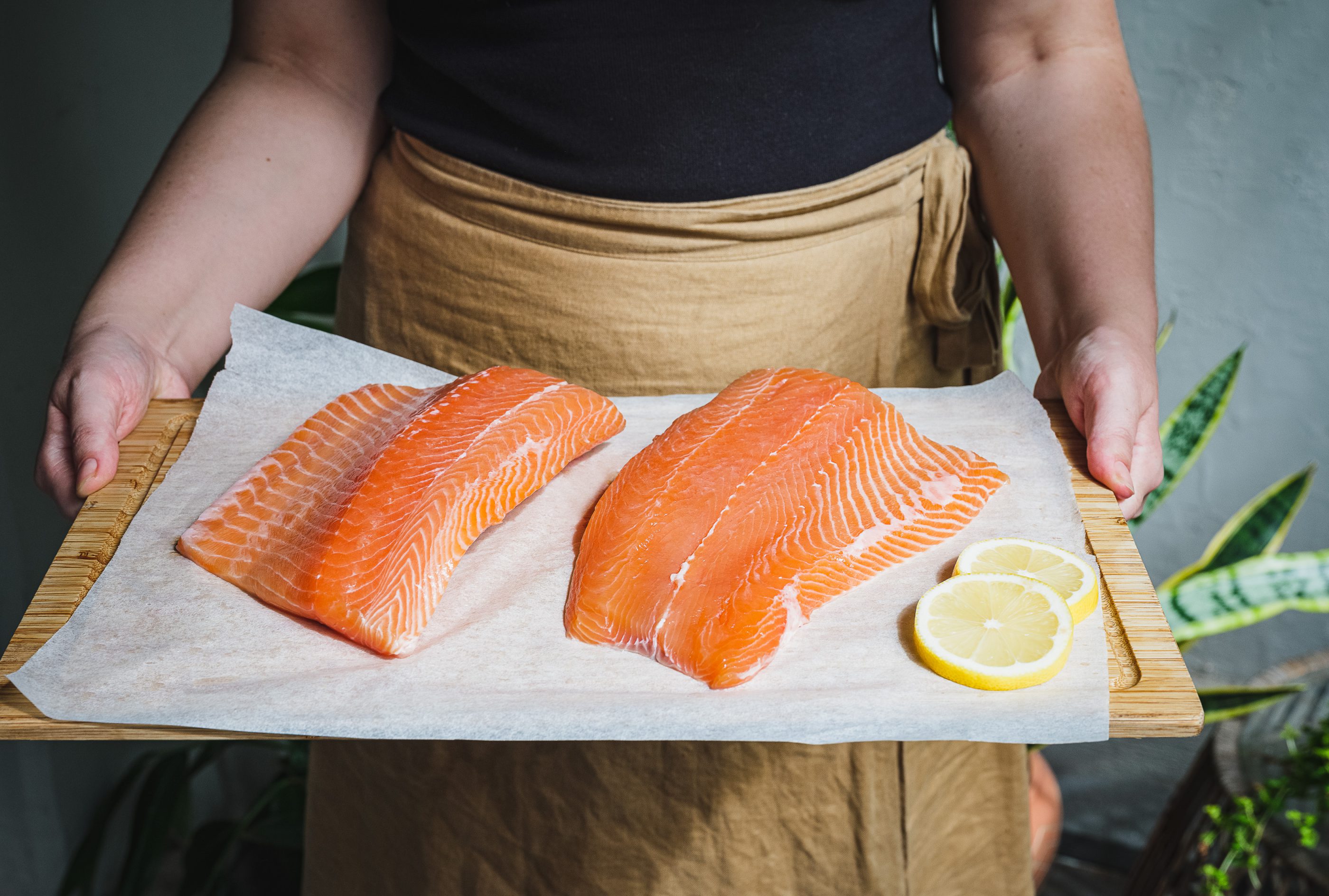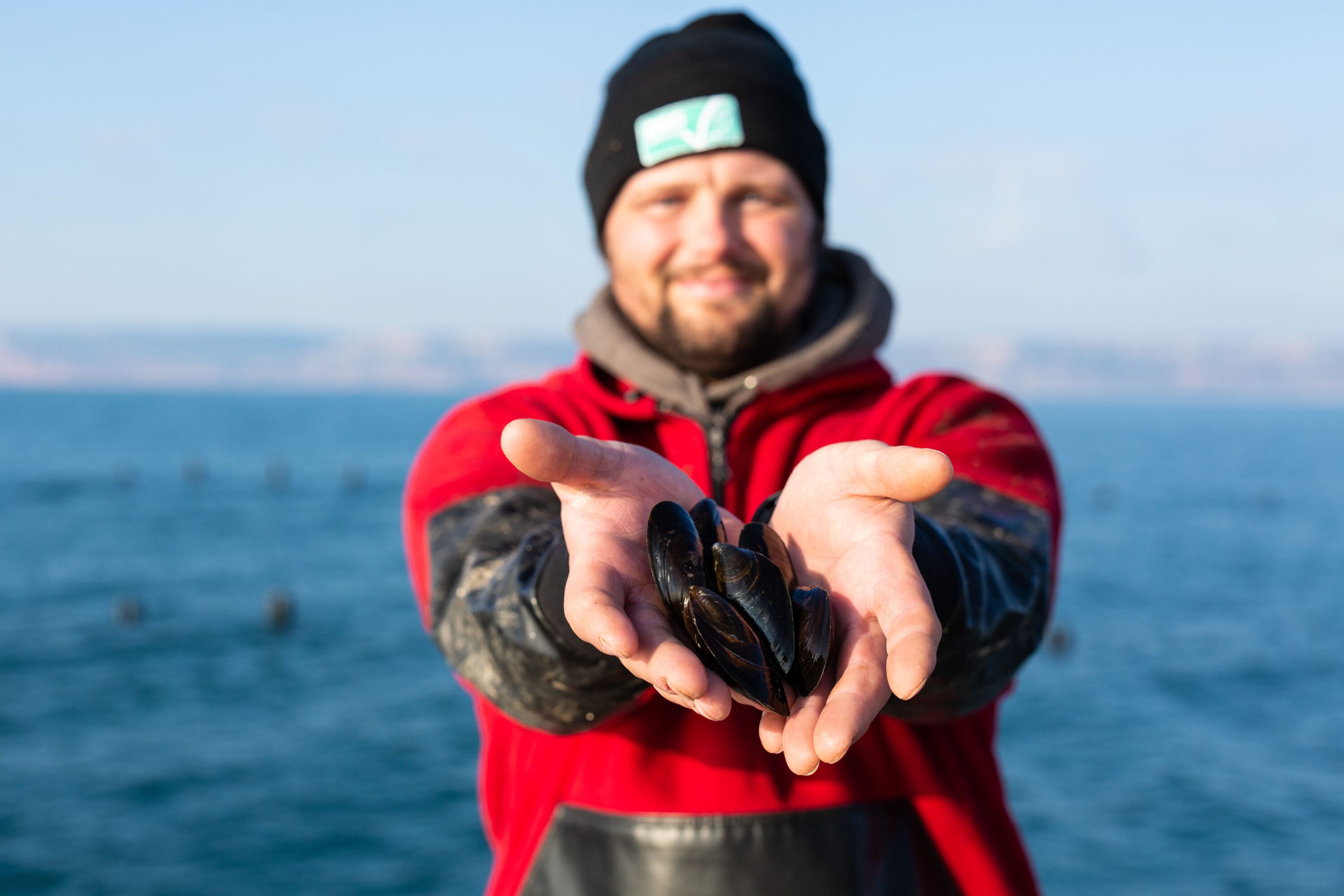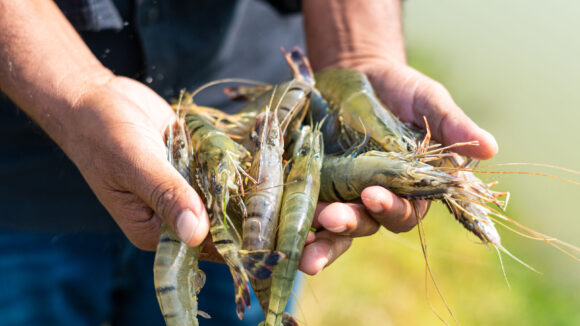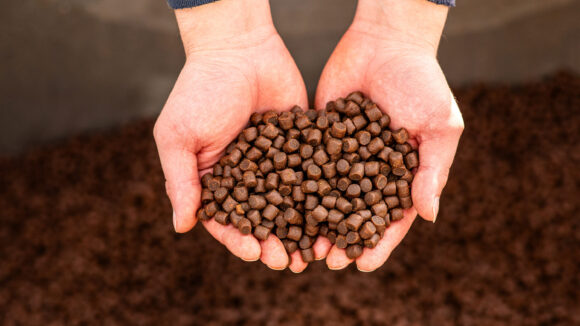
ASC Feed Standard
ASC’s Feed Standard tackles one of the biggest potential impacts of aquaculture, the production and supply of feed for farmed fish. Redefining responsible feed for aquaculture.
Why do we care about more responsible feed?
- More than 70% of farmed seafood (excluding algae) is fed
- Life cycle assessments indicate that feed can account for up to 90% of environmental impacts of fed aquaculture production (Little et al 2018)
- More than 90% of those impacts typically occur during the production and harvesting of raw materials for feed—through deforestation, land conversion, fisheries management, agricultural practices and more
- In 2020, over 58 million people were employed in fisheries and aquaculture globally (FAO SOFIA report 2022)
Why is responsibly sourced feed so important?
Feed is typically the highest input cost for a farmer
Understanding what’s in the feed and where it’s coming from is important for increased transparency.
Feed has to meet the nutritional and welfare needs of fish (including shellfish, bivalves etc.)
All ingredients, including protein and oil alternatives, not only have to be more responsible, but still need to meet nutritional needs that lead to good health and welfare.
Feed pellets can contain up to 50 ingredients (including fishmeal, fish oil, soy and other plant ingredients – e.g. wheat and rice)
Each ingredient can have its own distinct supply chain with its own set of impacts that need to be assessed. There is lots of variation in ingredients used and they’re sourced from all over the world, meeting the standards can differ vastly per product.
Feed ingredient supply chains can be long and complex
Traceability and transparency are important to ensure that every step of the aquafeed supply chain is meeting required standards.
ASC certified farms have until 31st October 2025 to transition to ASC compliant feed produced by ASC certified feed mills in order to continue meeting the ASC Farm Standards and to retain certification.
Feed for the future: ASC’s vision for feed
Aquaculture is the fastest growing source of protein globally. Our mission is to transform the sector towards more environmentally and socially responsible practices, using efficient market mechanisms that create value across the chain.
A key part of that is ensuring enough responsibly sourced feed is available to support this growth. The Feed Standard contributes to more responsible seafood farming practices globally by making sure every feed ingredient is risk assessed for impacts on people and our planet, and best practices in feed supply chains are recognised.
Feed ingredients may have different environmental and social impacts depending on the type of ingredient, location and production method. For example:
- Soy may have deforestation and land conversion risk
- Other plant ingredients may risk ecosystem conversion
- Fishmeal and fish oil risks depleting a finite resource
Risk assessments will be conducted on majority ingredients (greater than 1% inclusion) used in feed.
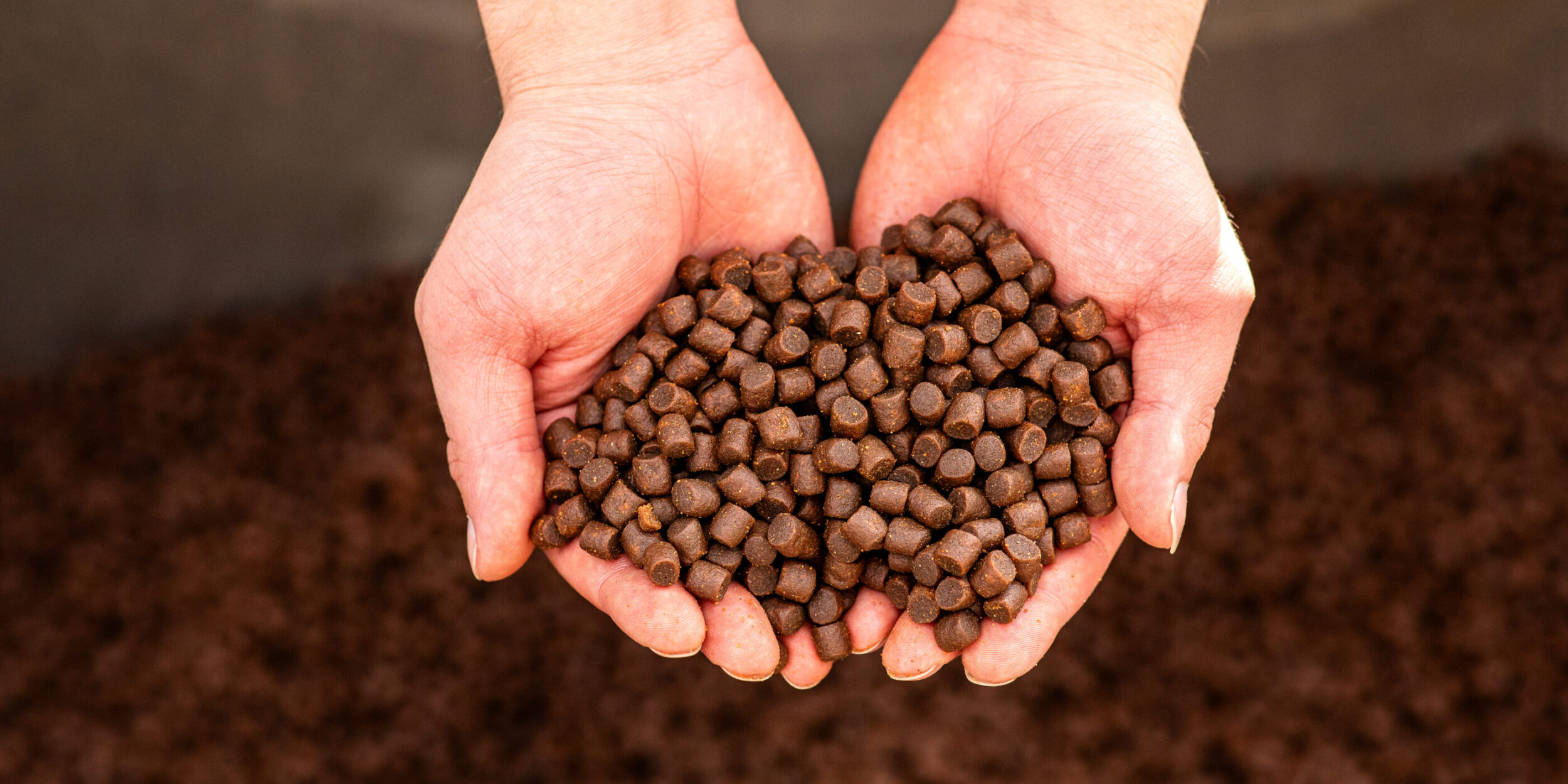
To set targets and make progress towards more responsible feed, greater traceability, transparency and supply chain collaboration is required.
Impacts that move the dial
ASC certified feed mills demonstrate positive impacts across five areas:

- Direct environmental and carbon impacts
ASC certified feed mills must record and report their energy use and greenhouse gas (GHG) emissions, and set targets to improve energy efficiency, use of renewables and water.
- Tackle climate and biodiversity impacts
ASC’s Feed Standard requires transparent due diligence reporting on all ingredient supply chains (above 1% inclusion). Ingredient suppliers must also be risk assessed to ensure they are complying with environmental regulation and monitoring their operational impacts.
Plant-based ingredients must be low risk for illegal deforestation and land conversion. Marine-based ingredients must be low risk for illegal, unregulated and unreported (IUU) fishing and use of endangered species.
- Protect human rights and social assurances
The standard addresses requirements on labour rights, working conditions, community relations and other social criteria. This is audited at the feed mill and included within a supplier code of conduct.
Due diligence is required to ensure ingredient supply chains are low risk for forced and child labour, as well as other labour rights. This is critical as 70% of the estimated 160 million child labourers in the world, and 11% of the 16 million people estimated to be in forced labour, work in agriculture and fisheries.
- Incentivise fisheries to improve their practices
Our unique improvement model requires whole marine ingredients to be increasingly sourced from responsibly managed fisheries.
MarinTrust and MSC—both ISEAL Code Compliant organisations—play crucial roles in this mechanism (as well as improver programmes) and form the key stepping stones towards more sustainable fishmeal and fish oil supply chains. Over time, the majority of marine ingredients should increasingly be sourced from MSC certified fisheries.
- Achieve deforestation and land conversion free targets
ASC certified feed mills are committed to transitioning towards a deforestation and land conversion free supply chain.
Mills must either source soy, palm oil and plant ingredients from low-risk supply chains or have a public commitment to achieve low risk with an action plan, milestones and target date (in accordance with Accountability Framework Initiative).
Quick and easy online access to all relevant programme documentation surrounding our ASC Feed Certification Programme. Are you ready to Feed Responsibly?
ASC Feed Standard v1.1 Consultation – Now Live!
Learn more about our work on Feed
Please click here to learn more about the development of the Feed Standard.
